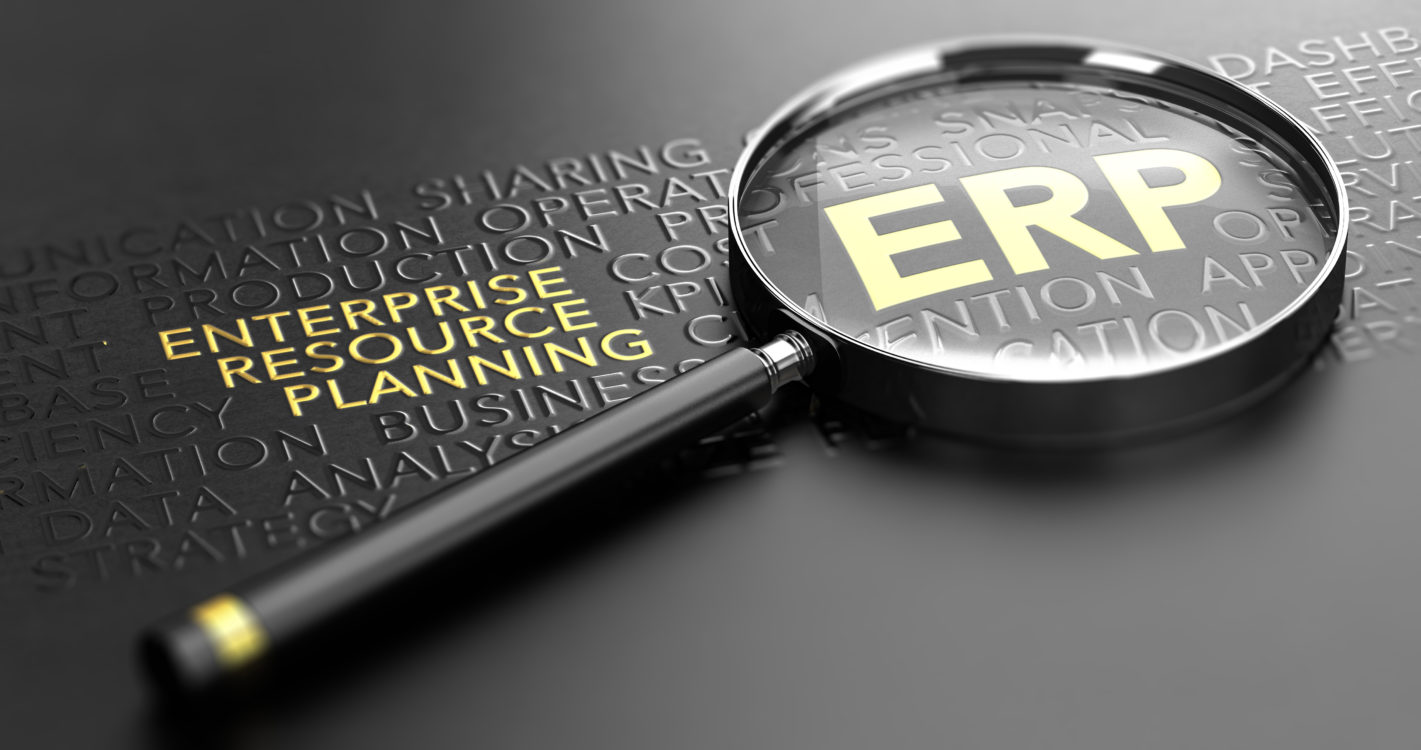
Enterprise Resource Planning (ERP) is business management software that enables an organization to use integrated systems. ERP systems streamline and automate processes, creating leaner, more accurate, and efficient operations. ERP provides complete visibility of core business processes. Enterprise resource planning platforms optimize systems through advanced resource tracking and reporting, database management and data sharing, and improved information systems. ERP systems can also help your business expand without additional IT or staffing costs.
ERP software and tools
ERP software enables businesses to manage data and perform other office functions (such as human resources management) using coordinated applications for maximum performance.
The specifics of the tools that make up a company’s ERP solution depend mainly on the organization’s needs. ERP is relatively easy to set up, although there are standard procedures in the industry.
The business value of ERP
An ERP system aims to consolidate data on all business operations in one easily accessible and understandable place. Therefore, it is hard to overestimate the value of an effective ERP for business. Here are just a few examples of the benefits of ERP:
Reduced risk: ERP helps companies in their day-to-day operations by eliminating the possibility of duplicate and inaccurate data and generally increasing efficiency.
Increased efficiency: ERP automates business processes across departments to avoid costly and unnecessary repetitions.
Enhanced business intelligence: ERP also flexibly enhances your capabilities by providing reliable access to accurate data anywhere. With cloud ERP, all you need is an internet connection to view critical information.
All these benefits lead to cost savings and improved efficiency of business functions.
ERP and the Cloud
The main difference between cloud ERP and its original on-premises incarnation is where the software is hosted. Once the software was hosted on-site and only available to companies that could afford the high price, it is now often available via web browsers for an affordable monthly fee.
In addition to democratizing technology, cloud ERP has had several other impacts:
Security: Cloud servers provide maximum security through data encryption and authentication controls, making it difficult for outsiders to access sensitive information.
Flexibility: The cloud provides greater flexibility, as companies can expand or reduce their services as their needs change, which also gives them the ability to pay only for what they use. In fact, the flexibility of the cloud establishes the efficiency potential of ERP, a technology that is already focused on efficiency.
Accessibility: Cloud ERP increases accessibility by giving business executives the ability to view information from anywhere there is an internet connection.
Does your business need ERP?
Many factors determine whether an organization needs an ERP system.
Does your business rely on Big Data?
One of the main ways to determine how valuable an ERP program can be to a business is to look at its data needs. If your company relies heavily on big data, the chances are high that a basic program won’t be enough.
Big data is one of the specialties of ERP. It is capable of storing and managing reliable data across various business operations, ensuring easy access and the most accurate record-keeping possible.
Are you struggling with inefficiencies?
Struggling with inefficiencies across technologies and applications is another sure sign that ERP could be in your future. One of its significant benefits is its ability to consolidate technology, especially when combined with cloud-based ESB to help integrate software and applications. As a consequence, enterprises no longer waste time on redundant operations or data entry. All information is processed by a single, highly efficient server.
Are your software costs higher than they should be?
You may also have noticed that your software costs are higher than you would like. While ERP used to be seen as an expensive and unaffordable business solution, the cloud has done much to alleviate this problem.
As a result, cloud ERP can be more affordable than licensing multiple programs that don’t work well together.
Are you struggling to meet customer requirements?
Is your current software preventing you from meeting customer requirements? A poorly coordinated technology stack makes it difficult to maintain data consistency and even to complete orders quickly and accurately.
A robust ERP can help manage orders by automating processes in all aspects of your business. For example, if a company receives transactional orders, the ERP system extracts billing data and sends the relevant delivery information to the appropriate department. This allows orders to be fulfilled faster and more accurately for optimum customer satisfaction.
All of these challenges are likely to arise if your company is developing at a reasonable rate. A cloud-based ERP system can not only help you handle these issues in the short term, but it will also continue to meet your demands as your company expands.
Accelerate your business with ERP
ERP solutions are optimized to streamline business, store and protect data, and provide flexibility and efficiency in operations. With cloud technology, enterprise resource planning is more affordable than ever before and can be afforded by businesses of all sizes.
Final Thoughts
An ERP application can be compared to the brain of your company’s technology system. In the human body, the brain controls all the parts of the body, telling them what to do and making sure they work together. It integrates all aspects of business, including product development, manufacturing, marketing, and sales. By synchronizing all of these areas, companies can gain visibility, increase performance and operational efficiency, reduce costs and enhance competitiveness.